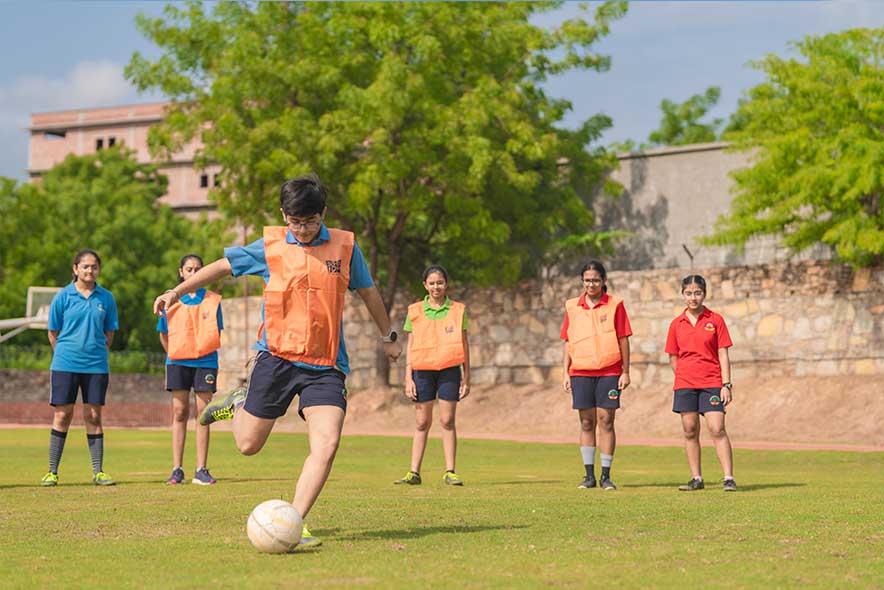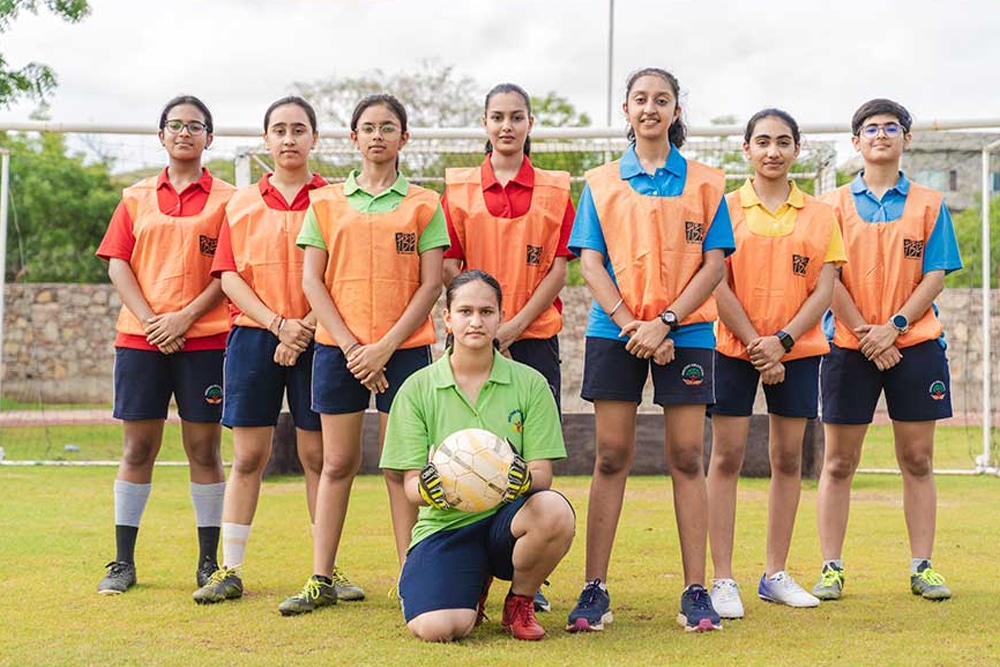Engaging in sports offers you some benefits. It fosters personal growth and well-being. Sports develop life skills like teamwork, leadership, and discipline. They boost mental health by lowering stress and enhancing concentration. Physical health benefits include maintaining weight and preventing chronic diseases. Sports enhance academic performance by improving focus and cognitive function. They teach transferable qualities like perseverance and resilience. Sports encourage social interactions and teamwork. Overall, they contribute to personal and professional development. There’s more to discover about the importance of sports in a student’s life.
Why are Sports Important?
Sports aren’t just about scoring goals or winning races; they’re about building character and fostering physical health. When you lace up your sneakers or pick up a racket, you’re not just exercising your body—you’re exercising life skills. From learning to collaborate with teammates to discovering the power of perseverance, sports teach invaluable lessons that extend far beyond the playing field. Plus, they’re a surefire way to keep your body in top shape, reducing the risk of health issues and boosting your mood along the way.
What Is The Importance Of Sports In A Student’s Life?
Engaging in sports as a student isn’t just about physical fitness—it’s about nurturing your mental well-being and honing essential life skills. Beyond the field or court, sports offer a sanctuary for reducing stress and boosting self-esteem. They’re a classroom for teamwork, leadership, and time management—skills that pave the way for personal growth and future success. Moreover, sports cultivate discipline and responsibility, enhancing your work ethic for academic and career endeavors. Through social interaction, sports foster friendships, communication, and a sense of belonging. Ultimately, embracing sports as a student shapes you into a well-rounded individual primed for life’s challenges.
Read More: Top Reasons Why Sports are Important in Boarding School
7 Importance Of Games And Sports In Student’s Life
When it comes to the significance of games and sports in your life as a student, there are various essential aspects to consider. These include maintaining your physical health, boosting your mental well-being, and even enhancing your academic performance. Engaging in sports can also help you develop valuable character traits like teamwork, leadership skills, and sportsmanship, while fostering social connections and camaraderie with peers.
Physical Health And Fitness
Participating in sports improves overall health by maintaining weight, enhancing cardiovascular health, and strengthening muscles. It also develops coordination, prevents diseases, boosts endurance, and improves sleep patterns.
Mental Well-Being And Stress Relief
Participating in games and sports enhances mental well-being by releasing endorphins, reducing stress, and fostering a positive mindset. Team involvement promotes social connections and belonging, while improved sleep quality supports better mental health.
Academic Performance Enhancement
Integrating sports and games into your schedule can greatly enhance academic performance. Physical activity boosts cognitive function, memory, and concentration, while releasing endorphins that improve mood and reduce stress. Sports instill time management, discipline, and goal-setting skills essential for success. Balancing sports and academics creates a well-rounded routine, benefiting both physical and mental well-being, ultimately leading to improved academic outcomes.
Character Development: Teamwork, Leadership, And Sportsmanship
Participating in sports cultivates teamwork by fostering collaboration, effective communication, and mutual support among individuals striving for a shared objective. Leadership skills are developed through roles like team captain, where students learn to motivate, make decisions, and set positive examples. Additionally, sports instill sportsmanship values, emphasizing fair play, respect, and graciousness in victory and defeat. These experiences shape essential character traits, preparing students for success beyond the field in various life aspects.
Social Skills And Camaraderie
Participating in sports and games fosters camaraderie and enhances social skills among students. Through teamwork and friendly competition, they learn effective communication, conflict resolution, and collaboration. Sports offer opportunities for interactions outside the classroom, fostering friendships based on shared experiences. The bonds formed on the field often extend beyond the game, creating a sense of belonging within the school community. Students learn to respect diversity, work together, and support each other through challenges, preparing them for success in academics and personal relationships.
Time Management and Discipline
Engaging in sports teaches students valuable time management and discipline skills, balancing practices and matches with academic responsibilities. This structured commitment fosters organizational habits that enhance overall productivity and success in all areas of life.
Long-term Habits for a Healthy Lifestyle
Participating in games and sports instills lifelong habits promoting a healthy lifestyle. Regular physical activity, balanced diet, and self-care become priorities, fostering fitness goal-setting and consistency. These habits lay the groundwork for future well-being and quality of life.

Conclusion
Incorporating sports into a student’s daily routine fosters discipline, teamwork, and a healthy lifestyle. Engaging in sports not only enhances physical well-being but also cultivates essential life skills that are beneficial beyond the playing field. Through sports, students learn the value of perseverance, time management, and resilience in the face of challenges. These qualities are transferable to academic pursuits and future career endeavors, contributing to overall success.
Moreover, participation in sports promotes social interactions and teamwork, fostering strong relationships and communication skills. Students learn to work collaboratively towards a common goal, understanding the importance of cooperation and mutual support. These interpersonal skills are invaluable in various aspects of life, including personal relationships and professional settings.
At Heritage Girls School, we’re committed to providing students with the best possible education, and we’re always here to help. If you have questions about our school or sports programs, contact our team today; we’ll be happy to answer any questions you may have.



